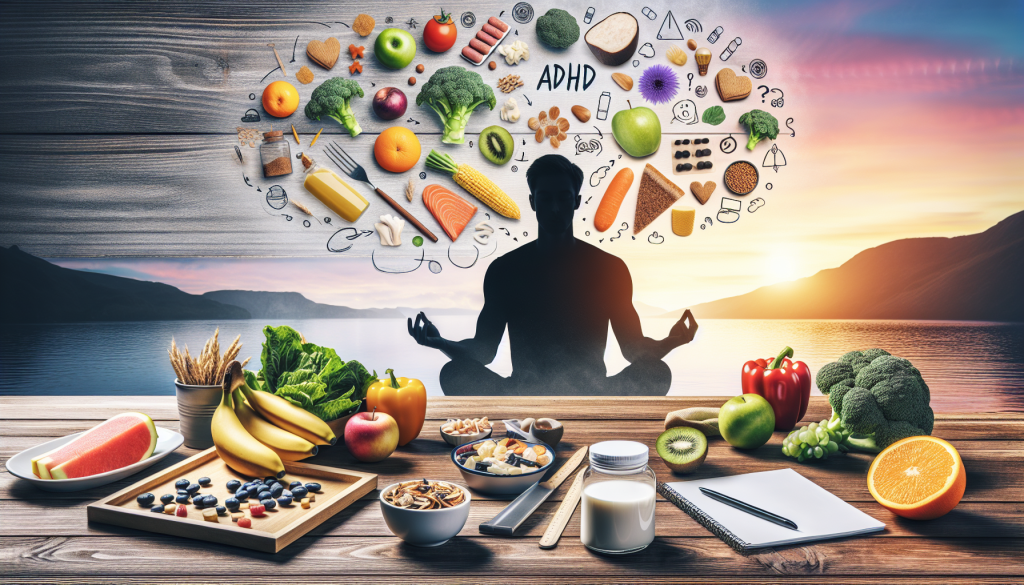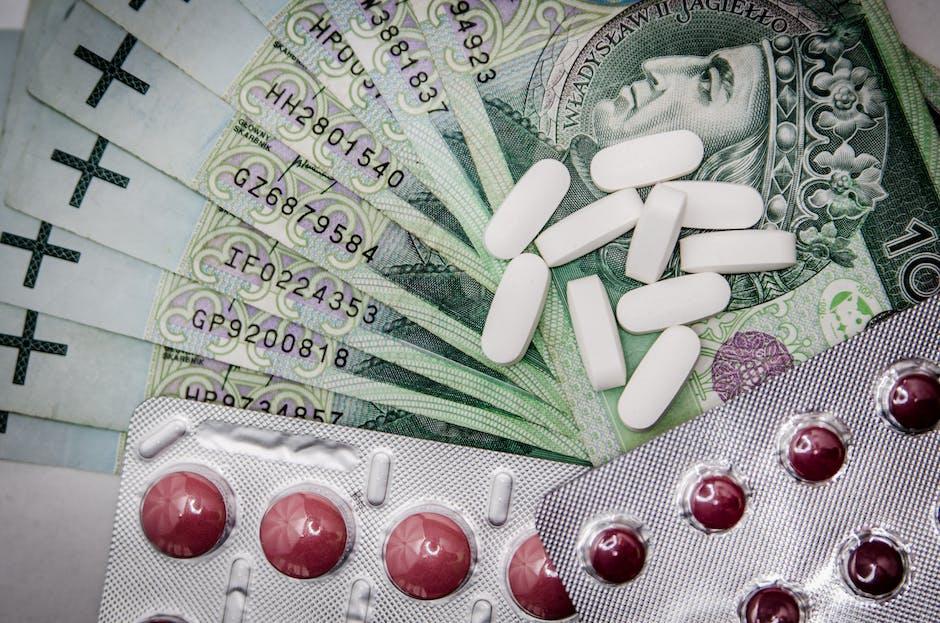How Can Diet Management Help Alleviate ADHD Symptoms?
Imagine trying to focus on a single task while your mind is a bustling city, with thoughts zooming around like cars in rush hour. That’s what living with ADHD can feel like. But here’s the good news: managing your diet can help calm that mental traffic jam. By understanding how certain foods and nutrients affect ADHD symptoms, you can make choices that support better focus and behavior. Keep reading to discover how you can use diet as a tool to manage ADHD symptoms effectively.
Key Takeaways
- Diet plays a crucial role in managing ADHD symptoms.
- Protein-rich foods and omega-3 fatty acids are beneficial for brain function.
- Vitamins and minerals like zinc, iron, and magnesium support cognitive health.
- Avoiding high-sugar foods and artificial flavors can reduce symptom severity.
- Supplements like ginkgo and ginseng may offer additional support.
Introduction to ADHD and Diet Management
Overview of ADHD
Attention Deficit Hyperactivity Disorder (ADHD) is like a whirlwind in the brain, making it hard to sit still, focus, or control impulses. It’s a common condition that affects both kids and adults, and it can make everyday tasks feel like climbing a mountain. But don’t worry, there’s hope! Understanding ADHD is the first step in finding ways to manage it effectively.
Importance of Diet in Managing ADHD Symptoms
Did you know that what you eat can have a big impact on how your brain works? It’s true! Just like a car needs the right fuel to run smoothly, your brain needs the right nutrients to function well. A balanced diet can help improve focus, reduce hyperactivity, and even boost mood. So, let’s dive into how diet management can make a difference for those with ADHD.

Nutritional Components Beneficial for ADHD
Protein-Rich Foods
Role of Protein in Neurotransmitter Production
Proteins are like the building blocks of your brain. They help produce neurotransmitters, which are chemicals that send messages between brain cells. These messages are crucial for focus and attention. So, eating enough protein can help keep your brain’s communication system running smoothly.
Examples of Protein-Rich Foods
Think of protein as your brain’s best friend. Foods like chicken, fish, eggs, beans, and nuts are packed with protein. Including these in your meals can help support better brain function and manage ADHD symptoms.
Omega-3 Fatty Acids
Benefits for Brain Function
Omega-3 fatty acids are like brain boosters. They help improve brain function, reduce inflammation, and support overall mental health. Studies have shown that omega-3s can help reduce ADHD symptoms, making them a valuable addition to your diet.
Sources of Omega-3 Fatty Acids
You can find omega-3s in fatty fish like salmon and mackerel, as well as in flaxseeds, chia seeds, and walnuts. Adding these foods to your diet can help keep your brain sharp and focused.

Vitamins and Minerals Essential for ADHD
Role of Zinc, Iron, and Magnesium
Impact on Brain Function
Zinc, iron, and magnesium are like the unsung heroes of brain health. They play a vital role in neurotransmitter production and brain function. A deficiency in these minerals can lead to increased ADHD symptoms, so it’s important to get enough of them in your diet.
Food Sources Rich in These Minerals
You can find zinc in foods like meat, shellfish, and legumes. Iron is abundant in red meat, spinach, and lentils. Magnesium is found in leafy greens, nuts, and whole grains. Including these foods in your meals can help support better brain health.
Importance of B Vitamins
Energy and Cognitive Function Support
B vitamins are like the spark plugs of your brain. They help convert food into energy and support cognitive function. A diet rich in B vitamins can help improve focus and reduce ADHD symptoms.
Dietary Sources of B Vitamins
You can find B vitamins in foods like whole grains, eggs, dairy products, and leafy greens. Eating a variety of these foods can help keep your brain energized and focused.

Foods and Substances to Avoid
High-Sugar Foods and Snacks
Effects on ADHD Symptoms
Sugar is like a rollercoaster for your brain. It can cause spikes and crashes in energy levels, making it harder to focus and control impulses. Reducing sugar intake can help stabilize mood and improve attention.
Alternatives to High-Sugar Foods
Instead of reaching for sugary snacks, try fruits, nuts, or yogurt. These healthier options can provide sustained energy without the sugar crash.
Artificial Flavors and Common Allergens
Negative Impact on ADHD Symptoms
Artificial flavors and common allergens can be like gremlins in your brain, causing chaos and worsening ADHD symptoms. Identifying and eliminating these from your diet can help improve focus and behavior.
Identifying and Eliminating Allergens
Keep an eye out for foods that may trigger symptoms, such as artificial colors, preservatives, and common allergens like gluten or dairy. Working with a healthcare professional can help you identify and avoid these triggers.

Supplements for ADHD Symptom Management
Ginkgo and Ginseng
Potential Benefits for ADHD
Ginkgo and ginseng are like nature’s little helpers. They may improve focus, memory, and overall brain function, making them popular supplements for managing ADHD symptoms.
Considerations for Use
Before adding any supplements to your routine, it’s important to talk to a healthcare professional. They can help you determine the right dosage and ensure there are no interactions with other medications.
Pycnogenol and Rhodiola Rosea
Effects on ADHD Symptoms
Pycnogenol and Rhodiola Rosea are like secret weapons for your brain. They may help reduce stress, improve focus, and support overall mental health. Research suggests they could be beneficial for those with ADHD.
Research and Recommendations
While more research is needed, some studies have shown promising results. As always, consult with a healthcare professional before starting any new supplements.
Creating a Balanced Meal Plan
Importance of Variety in Nutrients
Ensuring a Balanced Diet
A balanced diet is like a symphony for your body, with each nutrient playing its part. Ensuring a variety of nutrients can help support overall health and manage ADHD symptoms.
Planning Meals for ADHD Management
When planning meals, aim for a mix of protein, healthy fats, and complex carbohydrates. This combination can help keep your brain fueled and focused throughout the day.
Practical Tips for Meal Preparation
Incorporating Beneficial Foods
Incorporate foods rich in protein, omega-3s, and essential vitamins and minerals into your meals. This can help support better brain function and reduce ADHD symptoms.
Avoiding Harmful Substances
Steer clear of high-sugar foods, artificial flavors, and common allergens. These can worsen ADHD symptoms and make it harder to focus.

Conclusion
Summary of Key Points
Managing ADHD symptoms through diet is like finding the right key to unlock better focus and behavior. By incorporating protein-rich foods, omega-3 fatty acids, and essential vitamins and minerals, you can support better brain health. Avoiding high-sugar foods and artificial flavors can also help reduce symptom severity.
Encouragement for Personalized Diet Management
Remember, everyone’s journey with ADHD is unique. What works for one person may not work for another. It’s important to find a diet that works for you and supports your individual needs. With the right approach, you can use diet management as a powerful tool to help alleviate ADHD symptoms and improve your quality of life.
For more insights on managing ADHD, check out this article on nutrition and ADHD. You might also find this resource helpful for understanding ADHD treatment options. And if you’re curious about innovative treatments, explore this page for more information.
Discover the Power of Diet Management in Alleviating ADHD Symptoms: Your Go-To FAQ
How does diet management impact ADHD symptoms?
Diet management can influence ADHD symptoms by providing the brain with essential nutrients that support cognitive function. A balanced diet may help reduce hyperactivity and improve focus and attention in individuals with ADHD.
What foods should be included in a diet for managing ADHD?
A diet for managing ADHD should include foods rich in omega-3 fatty acids, lean proteins, whole grains, fruits, and vegetables. These foods provide the necessary nutrients to support brain health and can help stabilize mood and energy levels.
Are there specific foods that should be avoided for ADHD management?
Yes, it is advisable to avoid foods high in sugar, artificial additives, and preservatives, as they may exacerbate ADHD symptoms. Processed foods and those containing artificial colors and flavors can also negatively affect behavior and concentration.
Can eliminating certain foods improve ADHD symptoms?
Eliminating certain foods, such as those containing artificial dyes, gluten, or dairy, may improve ADHD symptoms in some individuals. However, it’s important to consult with a healthcare professional before making significant dietary changes.
Is there a connection between sugar intake and ADHD symptoms?
While sugar intake is not a direct cause of ADHD, high sugar consumption can lead to spikes and crashes in blood sugar levels, which may worsen symptoms like hyperactivity and impulsivity. Moderating sugar intake can help maintain stable energy levels.
How can omega-3 fatty acids benefit individuals with ADHD?
Omega-3 fatty acids, found in foods like fish, flaxseeds, and walnuts, are crucial for brain health. They may help reduce ADHD symptoms by improving cognitive function, attention, and behavior in some individuals.
What role do vitamins and minerals play in managing ADHD?
Vitamins and minerals, such as zinc, iron, magnesium, and vitamin B6, play a vital role in brain function and neurotransmitter regulation. Adequate intake of these nutrients can support cognitive health and potentially alleviate ADHD symptoms.
Can a diet plan replace medication for ADHD treatment?
While diet management can be a supportive strategy, it should not replace medication or other treatments prescribed by a healthcare professional. A comprehensive approach, including diet, medication, and behavioral therapy, is often most effective for managing ADHD.
How soon can dietary changes impact ADHD symptoms?
The impact of dietary changes on ADHD symptoms can vary from person to person. Some individuals may notice improvements within a few weeks, while for others, it may take longer. Consistency and patience are key when implementing dietary changes.
Should I consult a professional before making dietary changes for ADHD?
Yes, it’s important to consult with a healthcare professional, such as a dietitian or doctor, before making significant dietary changes. They can provide personalized guidance and ensure that dietary adjustments are safe and effective for managing ADHD symptoms.



